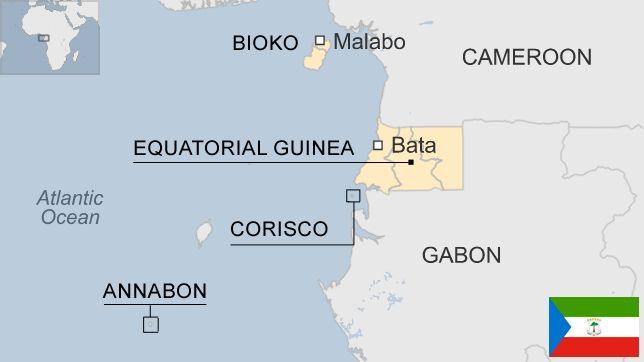Cameroon country profile
- Published
This page is no longer being updated. It was last updated on 9 March 2023
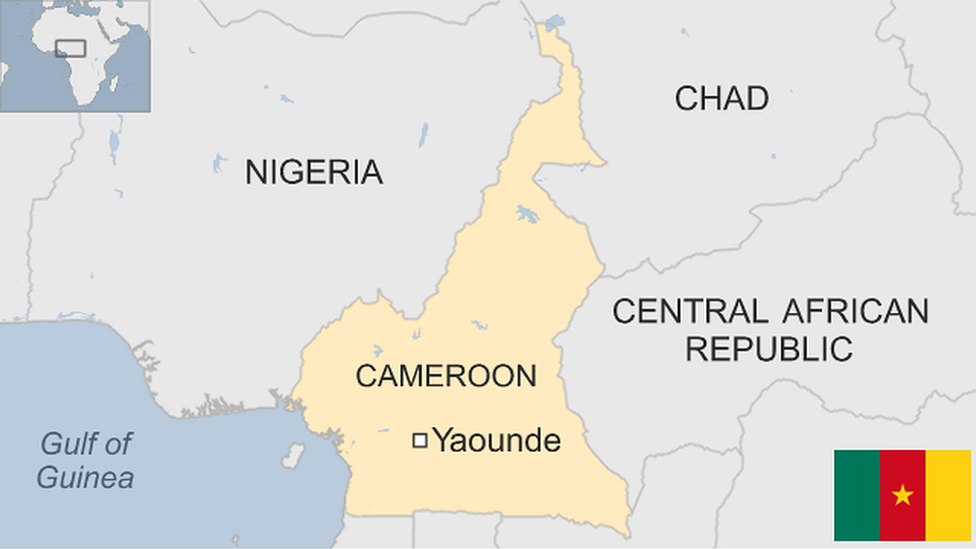
Cameroon is often known as "Africa in miniature" because of its geographical and cultural diversity.
The country has one of the highest literacy rates in Africa but its economic progress has been hampered by corruption and decades of authoritarian rule.
Created in 1961 by the unification of a British and a French colony, the modern state of Cameroon has also struggled to find peace and unity.
Since 2017, Cameroon's mainly English-speaking northwest and southwest regions have seen a guerrilla war between insurgents and government forces for the independence of the region as the Federal Republic of Ambazonia.
Hundreds of thousands have been internally displaced by the fighting. The conflict has also indirectly led to an upsurge in attacks by Boko Haram - part of the regional Islamist insurgency - as the army largely withdrew from the mainly-Muslim north to fight the anglophone separatists.
Read more country profiles, external - Profiles by BBC Monitoring, external
REPUBLIC OF CAMEROON: FACTS
Capital: Yaoundé
Area: 475,442 sq km
Population: 29.3 million
Languages: French, English, plus Cameroonian Pidgin English, Fula, Ewondo, Chadian Arabic, Camfranglais
Life expectancy: 59 years (men) 63 years (women)
LEADER
President: Paul Biya
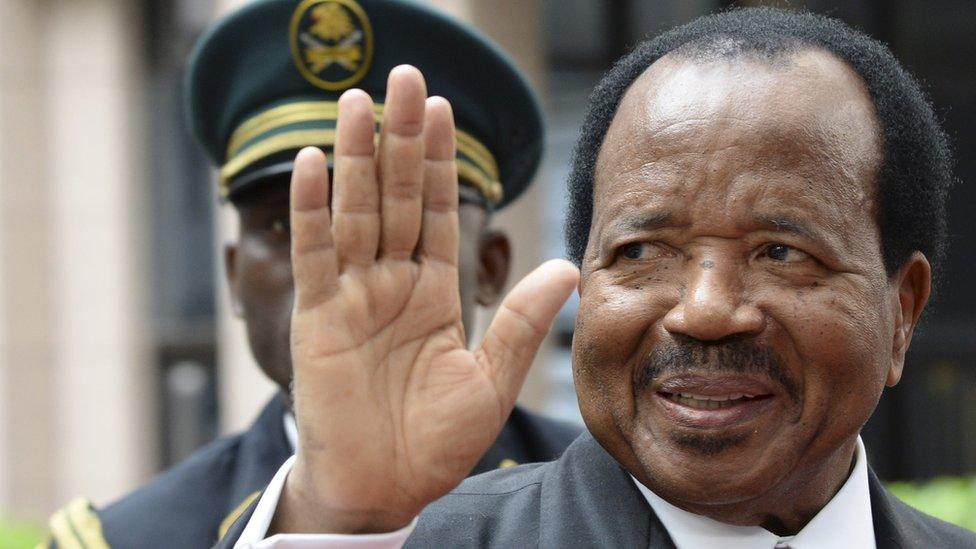
In power since 1982, Paul Biya is one of Africa's most entrenched leaders.
Parliament passed a controversial amendment in 2008 allowing him to run for office again, and he won new seven-year terms in 2011 and 2018 in votes marred by irregularities.
His party, the Cameroonian People's Democratic Movement (RDPC), has won landslide majorities in every parliamentary election since 1992.
Before becoming president, Mr Biya spent his entire political career in the service of President Ahmadou Ahidjo, becoming prime minister in 1975.
In 1983 he accused Mr Ahidjo of organising a coup against him, forcing the former president to flee the country.
MEDIA
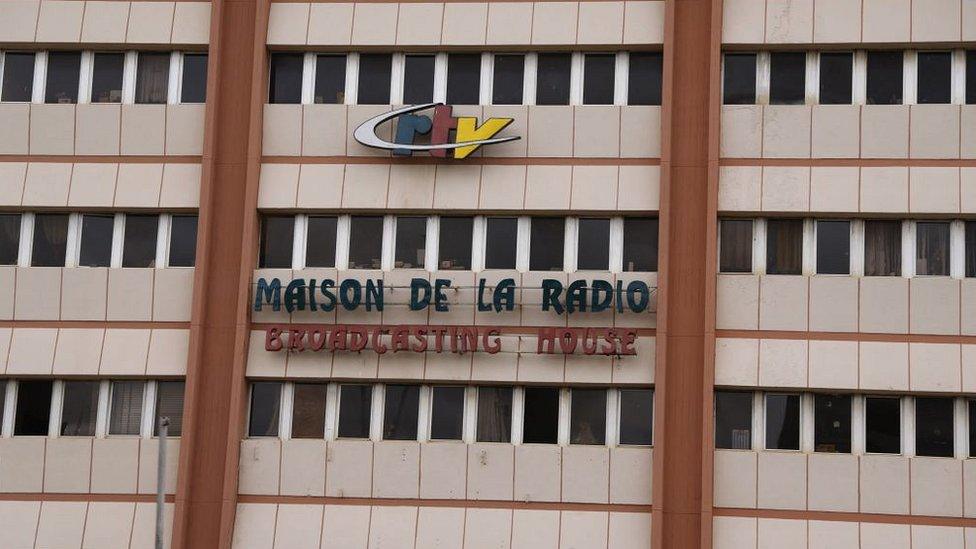
Although Cameroon has one of the most diverse media landscapes in Africa, it is one of the continent's most dangerous countries for journalists, says Reporters without Borders (RSF).
Many media outlets practice self-censorship, as reporters can face harassment and threats if their reporting endangers government interests.
TIMELINE
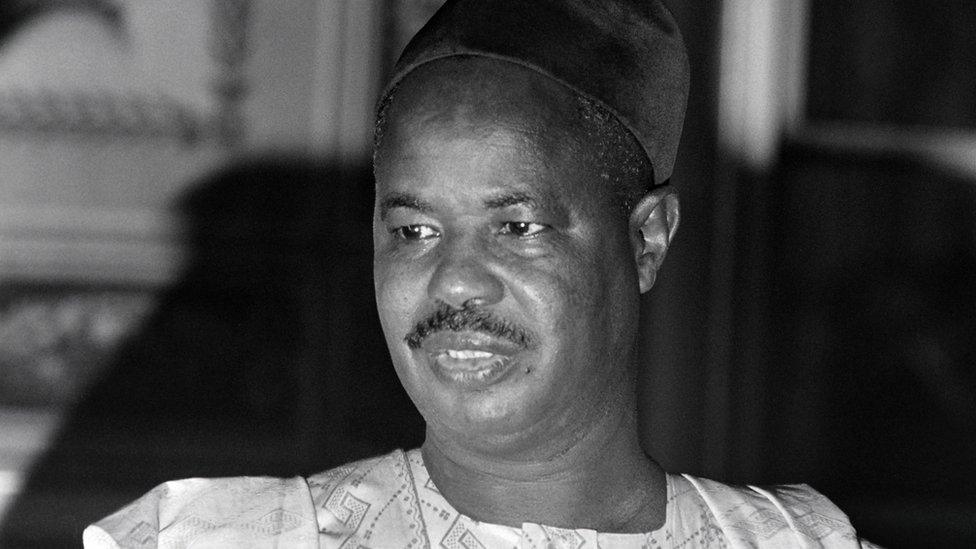
Ahmadou Ahidjo was independent Cameroon's first president. He stepped aside in 1982
Some key dates in Cameroon's history:
1520 - Portuguese set up sugar plantations and begin slave trade in Cameroon.
1600s - Dutch take over slave trade from Portuguese.
1884 - Cameroon becomes the German colony of Kamerun.
1911 - Under the Treaty of Fez - signed to settle the Agadir Crisis Franco-German conflict over Morocco - France cedes territories to the east and south to Cameroon.
1916 - World War One; British and French troops defeat German forces in Cameroon.
1919 - London Declaration divides Cameroon into French (80%) and British administrative zones (20%). The British zone is divided into Northern and Southern Cameroons.
1960 - French Cameroon granted independence and becomes the Republic of Cameroon with Ahmadou Ahidjo as president.
1961 - Britain's Cameroons colonies divide between Cameroon and Nigeria after a referendum. A large-scale insurrection mars the country's first years of independence until it is put down in 1963 with the help of French forces.
1972 - Cameroon becomes a unitary state following a national referendum and is renamed the United Republic of Cameroon.
1982 - Prime Minister Paul Biya succeeds Ahidjo, who flees the country the following year after President Biya accuses him of masterminding a coup.
1984 - President Biya elected to his first full term as president, changes the country's name to the Republic of Cameroon.
1994 - Fighting between Cameroon and Nigeria flares up over disputed oil-rich Bakassa Peninsula.
1996 - Further Cameroonian-Nigerian border clashes. Both sides agree to UN mediation.
1998 - Cameroon classed as the most corrupt country in the world by business monitor Transparency International.
2001 - Fears for Cameroon's environment increase, with Global Forest Watch reporting that 80% of the country's indigenous forests have been allocated for logging.
2002 - Ruling by International Court of Justice gives sovereignty of oil-rich Bakassi Peninsula to Cameroon. Nigeria, whose forces occupy the area, initially rejects the ruling.
2006 - Nigeria withdraws its troops from the Bakassi Peninsula, settling the dispute with Cameroon.
2014 - Cameroon faces increased attacks from the jihadist group Boko Haram; deploys troops to the border with northern Nigeria to counter the Islamist threat.
2016 - Activists in Anglophone areas step up a campaign for greater autonomy, prompting a fierce response from the government.
2017 - Ambazonian leaders unilaterally declare independence. the insurgency sees widespread human rights abuses across Cameroon by armed groups and government forces.
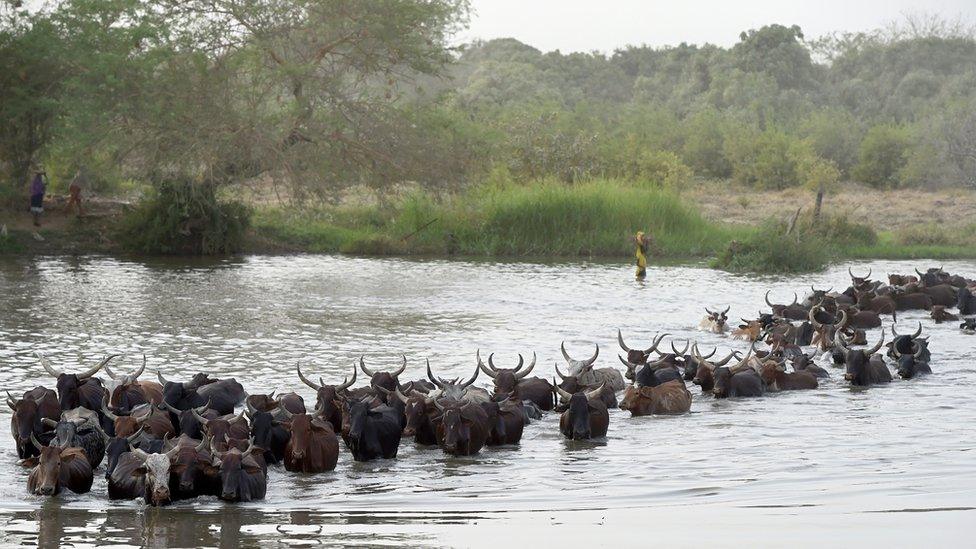
Lake Chad is shared by Chad, Cameroon, Nigeria and Niger. Some areas of the lake shore are subject to attacks by the Islamist group Boko Haram
- Published28 July 2023
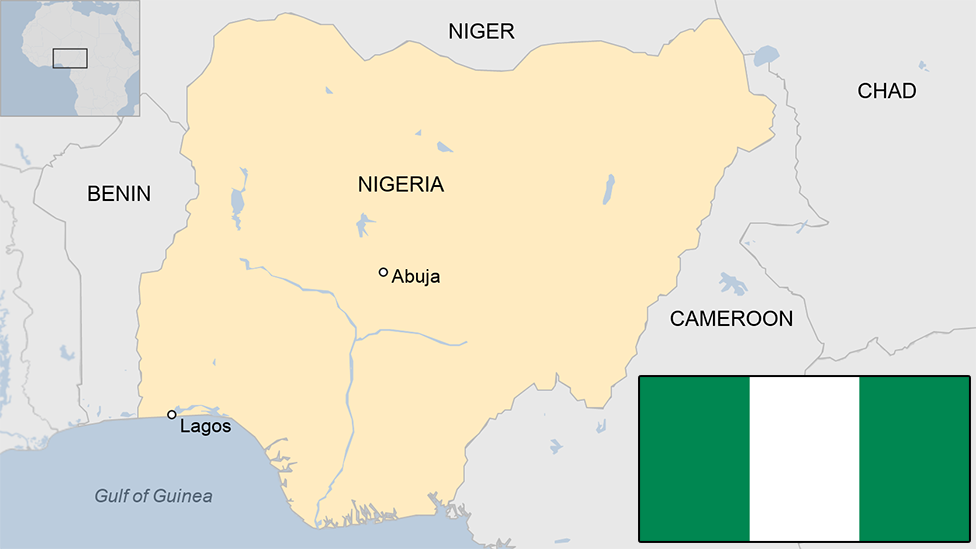
- Published9 July 2024
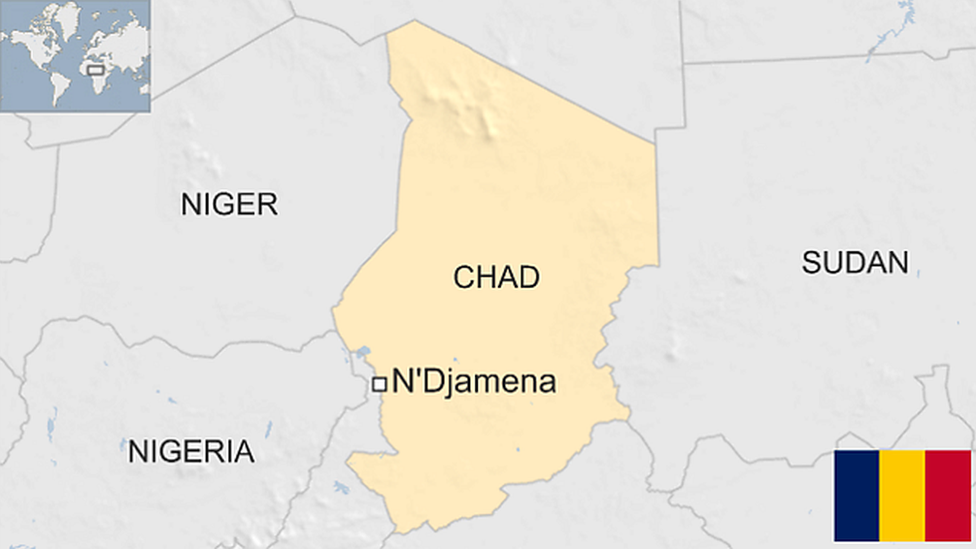
- Published22 August 2023
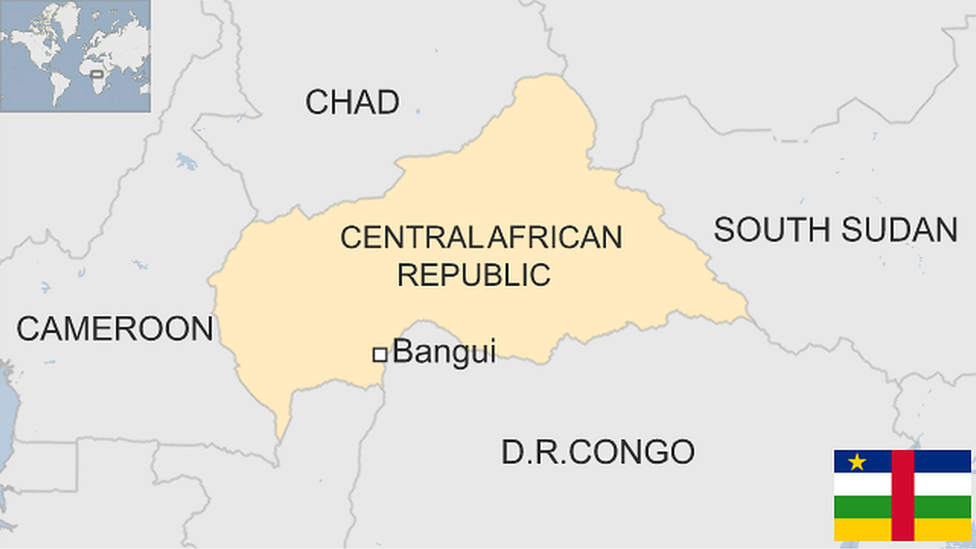
- Published11 April 2023
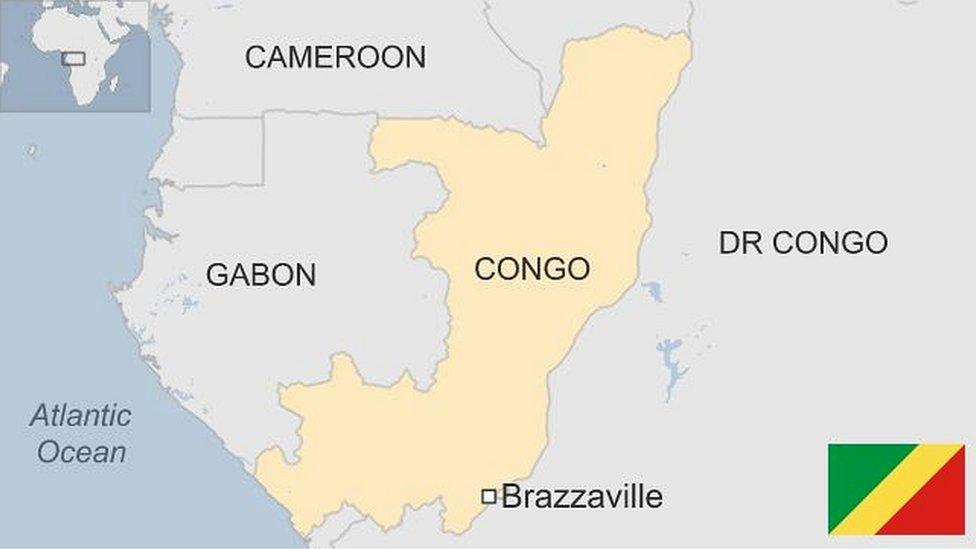
- Published1 September 2023
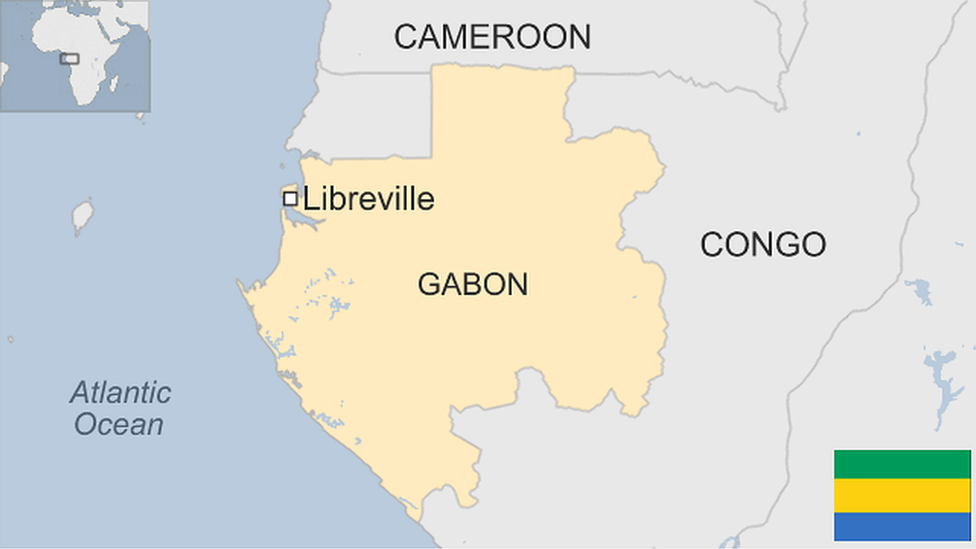
- Published11 April 2023
